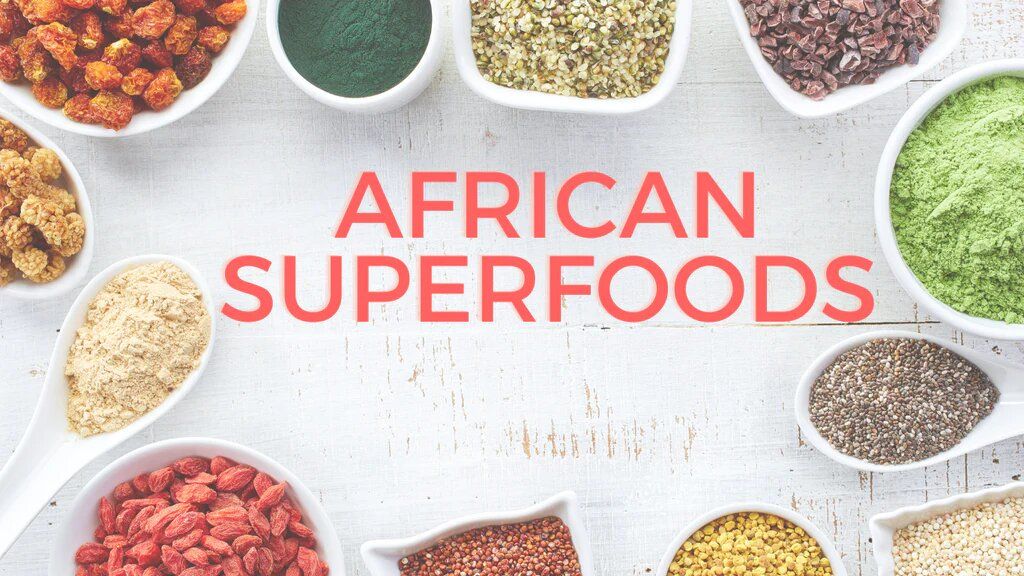Unleash the Power of African Superfoods: Boost Immunity, Fight Disease & More!
In recent times the global spotlight has turned towards the rich and diverse continent of Africa not just for its cultural heritage but for its treasure trove of superfoods. These nutrient-packed powerhouses are making waves for their exceptional health benefits including boosting the immune system providing a surge of antioxidants enhancing energy levels improving gut health and aiding in disease prevention. This article delves into the remarkable world of African superfoods offering insights into how these natural wonders can elevate your health and well-being.
The Nutritional Powerhouses of Africa
African superfoods come from various parts of the continent's lush landscapes ranging from dense rainforests to arid deserts. Each brings a unique set of nutrients that can transform your health:
Benefits Beyond Nutrition
The impact of African superfoods extends beyond mere nutrition; they offer a holistic approach to health:
- Immune System Support: The high antioxidant content in these superfoods strengthens the immune system making it more efficient in fighting off diseases.
- Energy Boost: Rich in vitamins and minerals these foods provide sustained energy throughout the day without the crash associated with sugary snacks.
- Gut Health Improvement: High dietary fiber content supports a healthy digestive system promoting gut health and preventing digestive disorders.
- Disease Prevention: The nutrient-rich profile of these superfoods helps in preventing chronic diseases such as diabetes hypertension and heart disease.
Incorporating African Superfoods into Your Diet
- Adopting African superfoods into your daily diet is easier than you might think. Here are some simple tips:
- Start by adding moringa powder to your smoothies or morning tea for an energy boost.
- Use teff or fonio as a base for salads and bowls replacing traditional grains.
- Snack on dried baobab fruit or incorporate baobab powder into your baking recipes for an antioxidant boost.
- Experiment with amaranth in soups or as a side dish to increase your protein intake.
Baobab:

- Overview: The majestic baobab tree often hailed as the "tree of life" is renowned for its substantial fruit pods which contain a tangy mildly sweet powdery pulp.
- Nutritional Profile: The fruit of the baobab is a powerhouse of nutrition boasting significant amounts of vitamin C antioxidants and fiber along with crucial minerals such as calcium potassium and magnesium.
- Health Advantages: The intake of baobab fruit is believed to bolster immune function enhance digestive wellness and contribute to the regulation of glucose levels. Its robust antioxidant capacity also aids in combatting oxidative damage and inflammation.
- Applications: The powdered form of baobab fruit can be incorporated into a variety of foods and drinks including smoothies juices and yogurt or even into baked treats offering a nutritional enhancement. It is also a component of various traditional African medicinal practices.
Moringa:
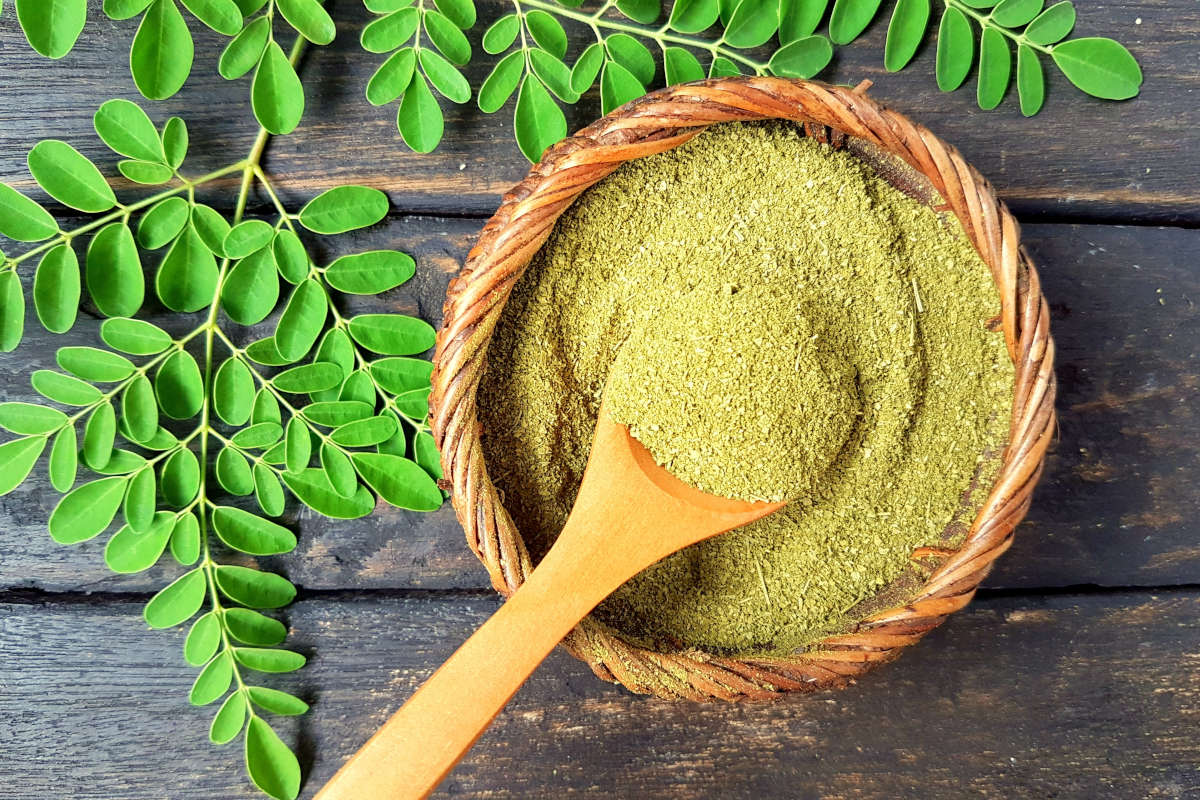
- Overview: Moringa a rapidly growing tree native to certain regions of Africa and Asia is celebrated for its nutrient-rich leaves.
- Nutritional Profile: Abundant in vitamins A C and E moringa leaves are a treasure trove of essential nutrients including calcium iron and potassium and provide a complete protein source with all nine essential amino acids.
- Health Advantages: Regular consumption of moringa can elevate energy levels support immune health and improve nutritional intake. Its potential for reducing inflammation and oxidative stress has also garnered attention.
- Applications: Both fresh and dried moringa leaves can enrich a variety of dishes from soups and salads to teas while moringa powder serves as a versatile supplement for smoothies and other culinary creations.
Teff:
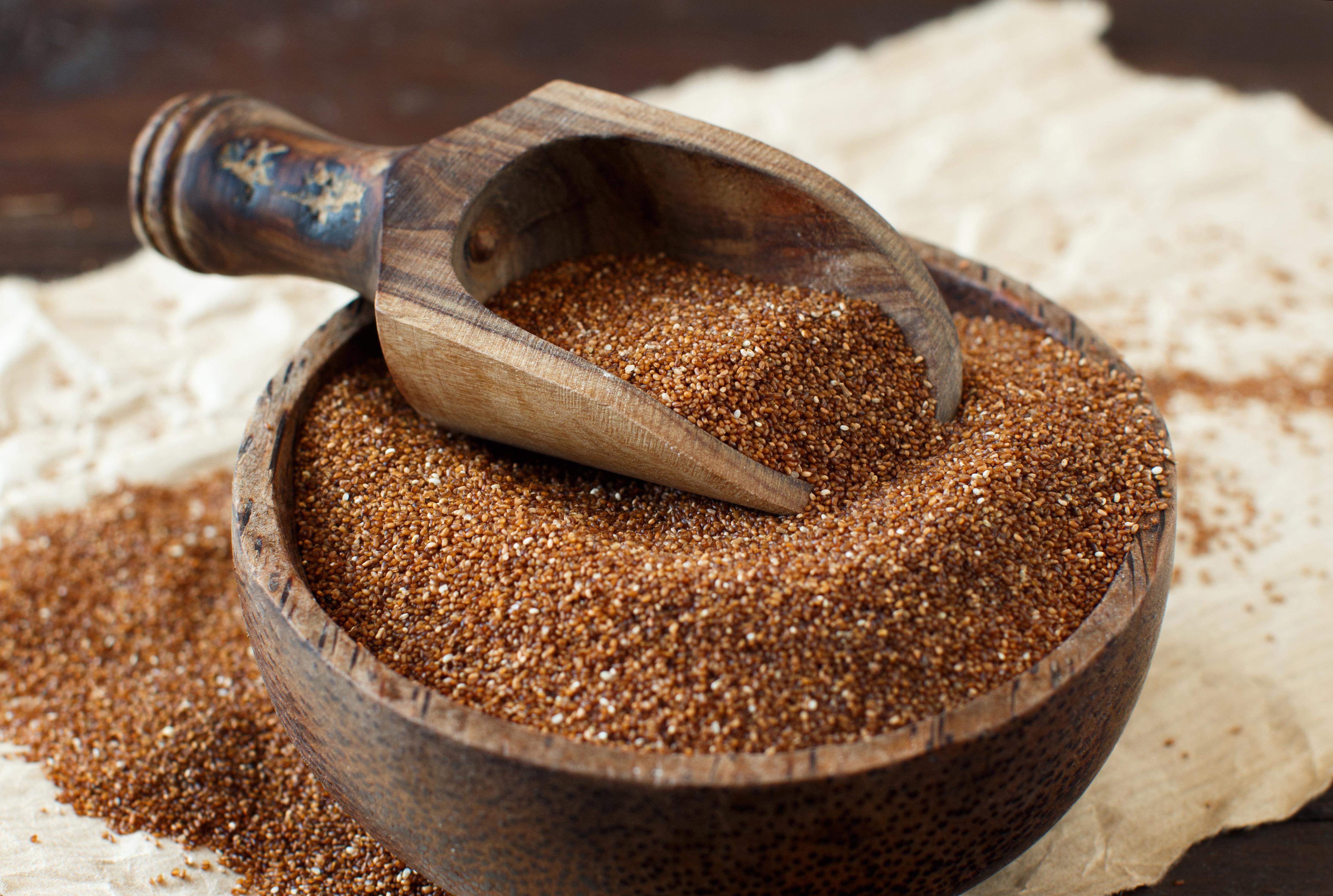
- Overview: Originating from Ethiopia and Eritrea teff is a minuscule grain with a long history of cultivation.
- Nutritional Profile: Teff is densely packed with nutrients offering protein fiber iron calcium and essential amino acids like lysine all while being a gluten-free option.
- Health Advantages: As a source of sustained energy and with a low glycemic index teff can aid in blood sugar management. Its high fiber content supports digestive health and may assist in managing weight.
- Applications: Teff flour is traditionally used in the preparation of injera a staple Ethiopian flatbread but the grain can also be prepared as porridge incorporated into soups or used in gluten-free baking alternatives.
Fonio:

- Overview: Fonio a small yet ancient grain cultivated in West Africa especially in nations like Senegal and Mali is celebrated for its nutritional value.
- Nutritional Profile: Compact in size but nutritionally robust fonio is a good source of protein fiber iron zinc and essential amino acids such as methionine and cysteine alongside being gluten-free and easily digestible.
- Health Advantages: Recognized for its nutritional and sustainable qualities fonio supports muscle development and repair aids in digestive health and provides a steady supply of energy.
- Applications: Versatile in its use fonio can be prepared similarly to rice or couscous acting as an excellent side or base for salads stews and more. It is also processed into flour for baking and used in the making of traditional African delicacies like thiakry or fonio pudding.
Amaranth:
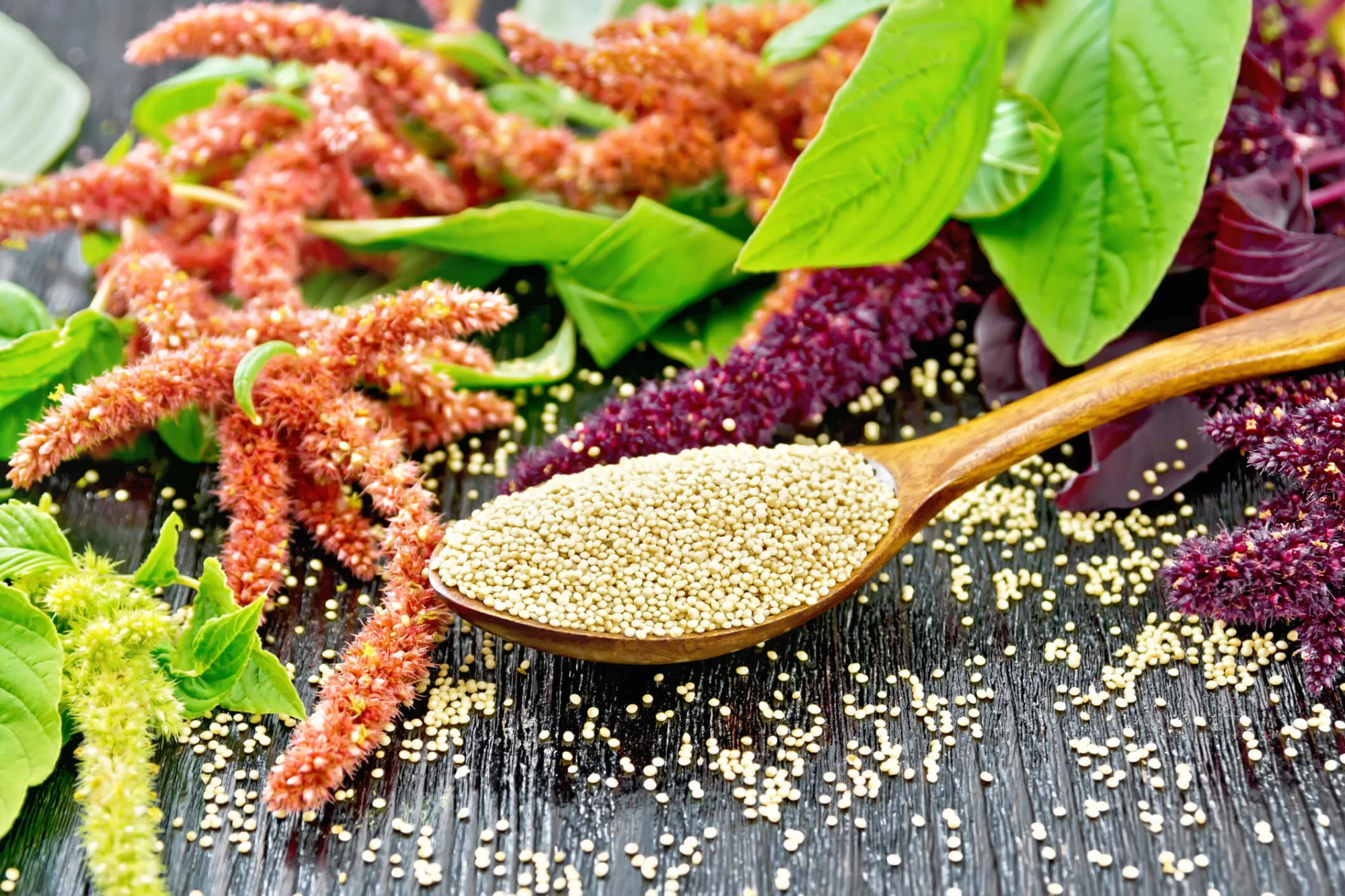
- Overview: Amaranth celebrated both as a leafy green and a pseudocereal boasts a history of cultivation spanning thousands of years across Africa and beyond.
- Nutritional Insights: Amaranth's leaves and seeds are nutritional powerhouses. The leaves are laden with vitamins A C and K alongside essential minerals like calcium iron and magnesium. Its seeds are rich in protein dietary fiber and vital amino acids.
- Health Perks: Regular consumption of amaranth is known to enhance bone cardiovascular and immune health thanks to its comprehensive nutrient content. Its gluten-free nature also contributes to blood sugar regulation.
- Culinary Uses: The versatility of amaranth allows its leaves to be savored cooked in various dishes or fresh in salads while its seeds can be transformed into porridge popped or milled into flour for an array of baked delights.
Shea Butter:

- Overview: Extracted from the nuts of the West African shea tree shea butter has a longstanding history in both skincare and culinary practices.
- Nutritional Highlights: Rich in vitamins A and E essential fatty acids and antioxidants like tocopherols and phenols shea butter also offers natural UV protection due to its cinnamic acid content.
- Health Advantages: Known for its profound moisturizing effects shea butter effectively combats skin dryness and conditions such as eczema reduces inflammation and fosters wound healing.
- Applications: Widely incorporated into lotions creams and balms shea butter's nourishing properties are also cherished in traditional African cuisine and as a natural conditioner for hair.
Hibiscus:
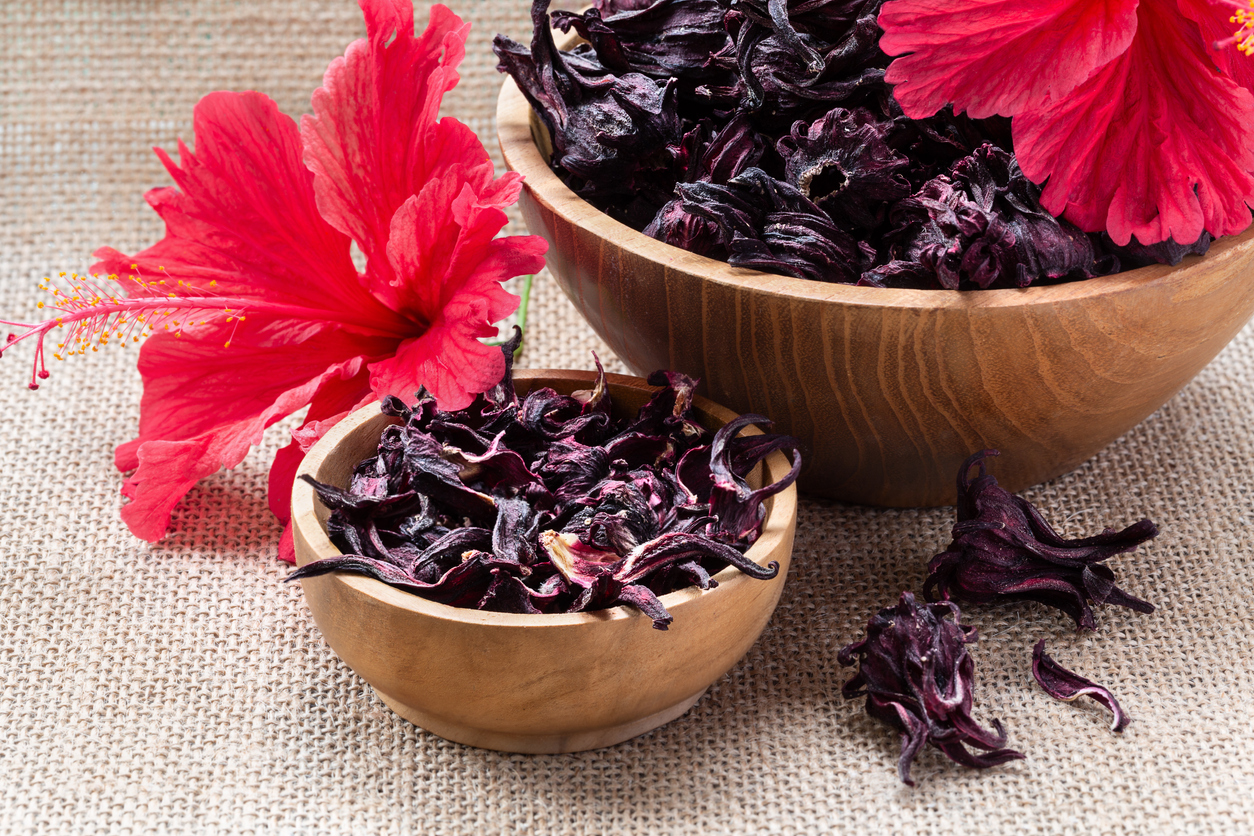
- Overview: Hibiscus or roselle is a tropical flowering plant whose striking red blossoms are crafted into a tart and invigorating tea.
- Nutritional Virtues: A treasure trove of vitamin C antioxidants and essential minerals such as calcium and iron hibiscus tea is also rich in anthocyanins compounds with notable health benefits.
- Wellness Benefits: The consumption of hibiscus tea is linked to lowered blood pressure improved cholesterol levels and enhanced liver function alongside its diuretic and immune-strengthening effects.
African Mango:
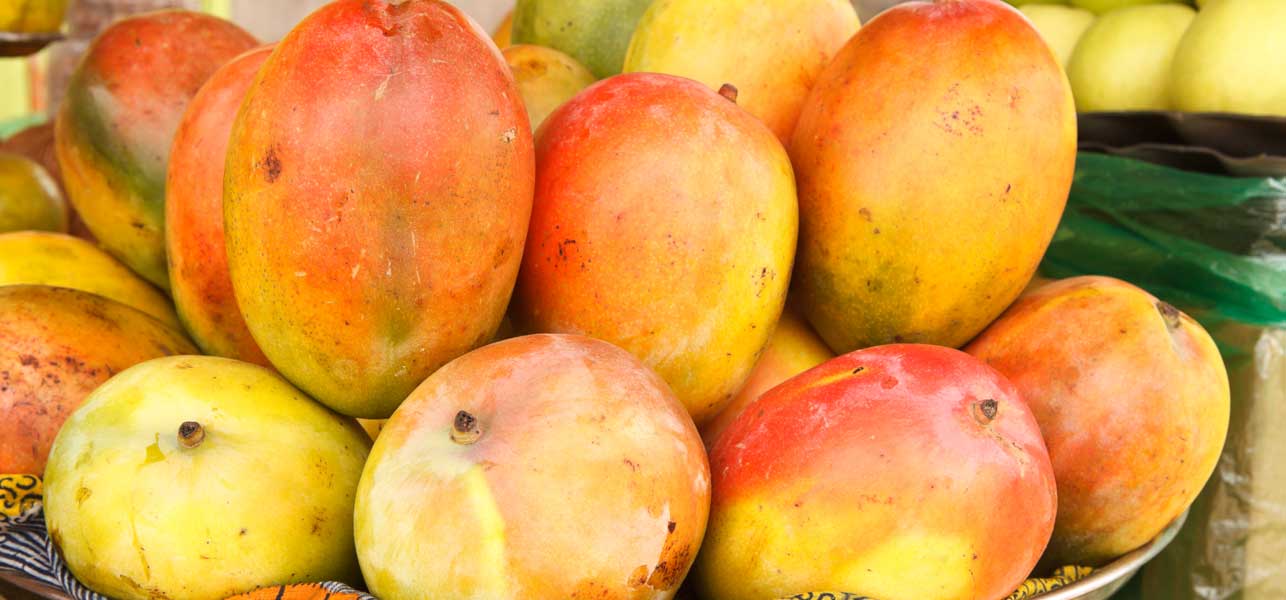
- Overview: Native to West Africa the African mango or Oro in Yoruba delights with its sweet and tangy taste and fibrous texture.
- Nutritional Profile: This fruit is a fiber-rich bounty with an abundance of vitamins minerals and antioxidants. It's uniquely noted for the Irvingia gabonensis extract a compound under research for its weight management and metabolic health implications.
- Health Contributions: The intake of African mango may curb appetite diminish fat cell proliferation and foster blood sugar stability in addition to its anti-inflammatory and immune-boosting capacities.
- Utilization: Beyond being enjoyed fresh African mango finds its way into jams jellies and juices as well as dietary supplements. Its seeds are integral to crafting the Nigerian delicacy Ogbono soup a blend of dried seeds and crayfish cherished not only for its flavor but also for its health benefits.
Bambara Groundnut:
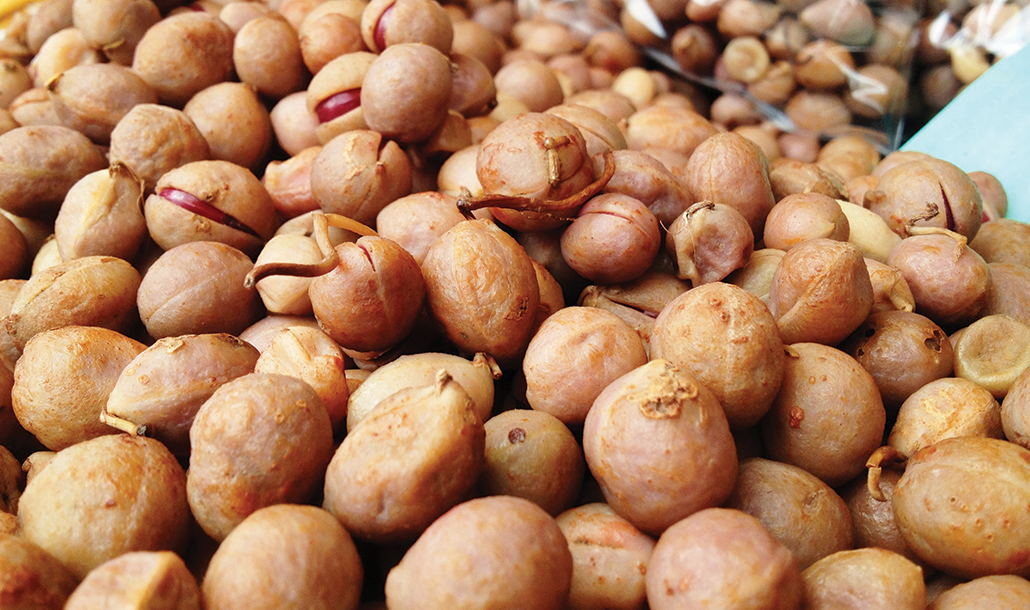
- Overview: Known scientifically as Vigna subterranea the Bambara groundnut is a cherished legume from West Africa famous for its nutritious seeds that develop underground.
- Nutritional Profile: A rich source of protein dietary fiber and key minerals such as calcium iron and phosphorus Bambara groundnuts also offer healthy fats and carbohydrates positioning them as a nutritional cornerstone in many African diets.
- Health Perks: Regular consumption can bolster muscle development and recovery enhance digestive wellness and contribute to stable blood sugar levels. The groundnut's fiber richness further assists in weight management and lowers chronic disease risks.
- Culinary Uses: These groundnuts are versatile ready to be boiled roasted or milled into flour for an array of culinary applications from soups and stews to porridges and snacks throughout West Africa.
Sorghum:
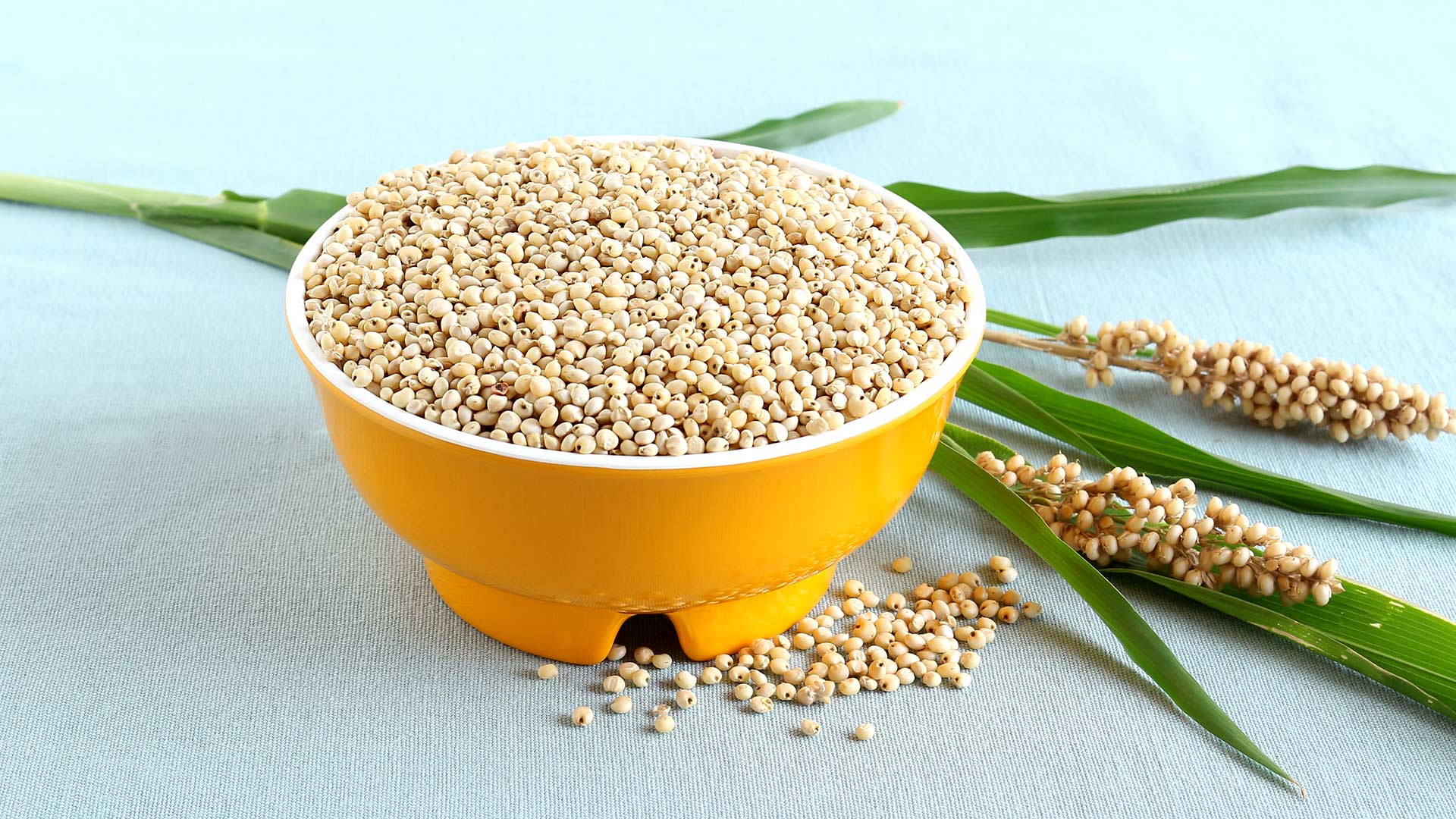
- Overview: Sorghum a multifaceted cereal grain cultivated across Africa Asia and the Americas presents in various hues like white red and brown serving both food and beverage industries.
- Nutritional Insights: This gluten-free grain is packed with antioxidants dietary fiber protein and vital minerals such as iron phosphorus and magnesium along with phytochemicals that boast potential health benefits.
- Health Benefits: Its inclusion in the diet may cut heart disease risk foster digestive health and help maintain blood sugar levels. Sorghum's antioxidant properties also guard against oxidative damage and inflammation.
- Applications: Sorghum can be transformed into porridge incorporated into soups stews or baked into a variety of goods with its flour. Sorghum syrup derived from its juice enriches traditional African recipes and beverages.
Palm Fruit:

- Overview: The oil palm tree yields the palm fruit indigenous to West Africa featuring a succulent outer layer and a hard kernel that yields palm oil.
- Nutritional Profile: Laden with vitamins A and E antioxidants and beneficial fats palm fruit also harbors carotenoids tocotrienols and other phytonutrients linked to health advantages.
- Health Benefits: Its consumption is tied to enhanced skin and eye health and may offer protection against heart disease and cancer. The extracted palm oil is a staple in culinary practices and traditional African medicinal remedies.
- Uses: Palm fruit can be savored fresh or processed into palm oil for culinary baking and food preparation purposes. It's also foundational in creating palm wine and various palm-infused dishes and snacks.
Plantains:
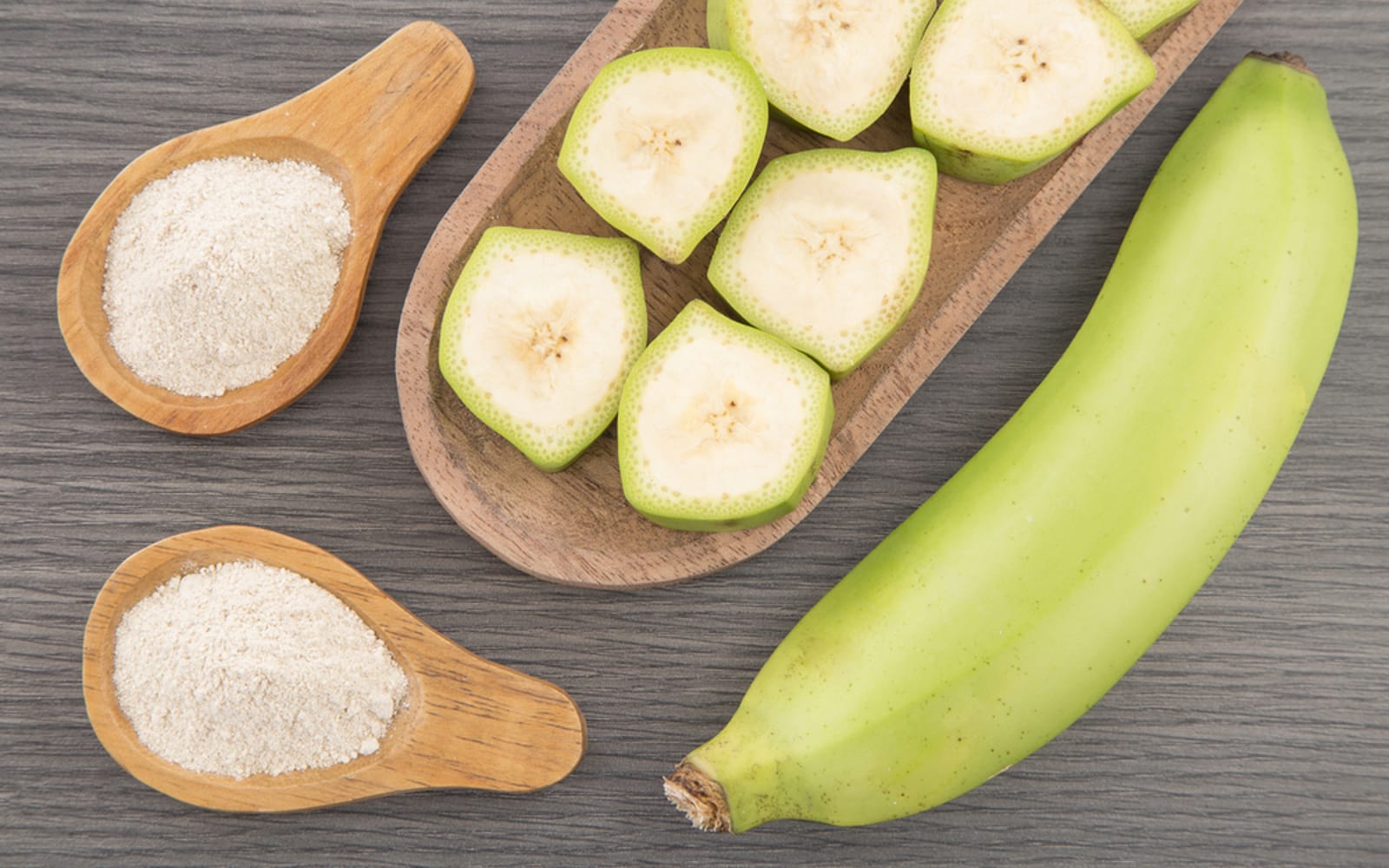
- Overview: Plantains are a robust member of the banana family distinguished by their starchiness. Larger and encased in thicker skins compared to their sweet banana cousins plantains are primarily enjoyed cooked.
- Nutritional Highlights: These fruits are an excellent source of complex carbohydrates and dietary fiber along with being rich in vitamins such as A and C and essential minerals like potassium offering both energy and digestive benefits.
- Health Advantages: Regular intake of plantains can aid in managing blood pressure enhancing digestive health and providing a steady energy supply. Their antioxidant properties further support overall well-being.
- Culinary Uses: Plantains show their culinary versatility by being delightful whether boiled fried grilled or baked. They star in West African dishes like "dodo" or "kelewele" when sliced and fried and also lend themselves well to stews soups and porridges.
Coconut:
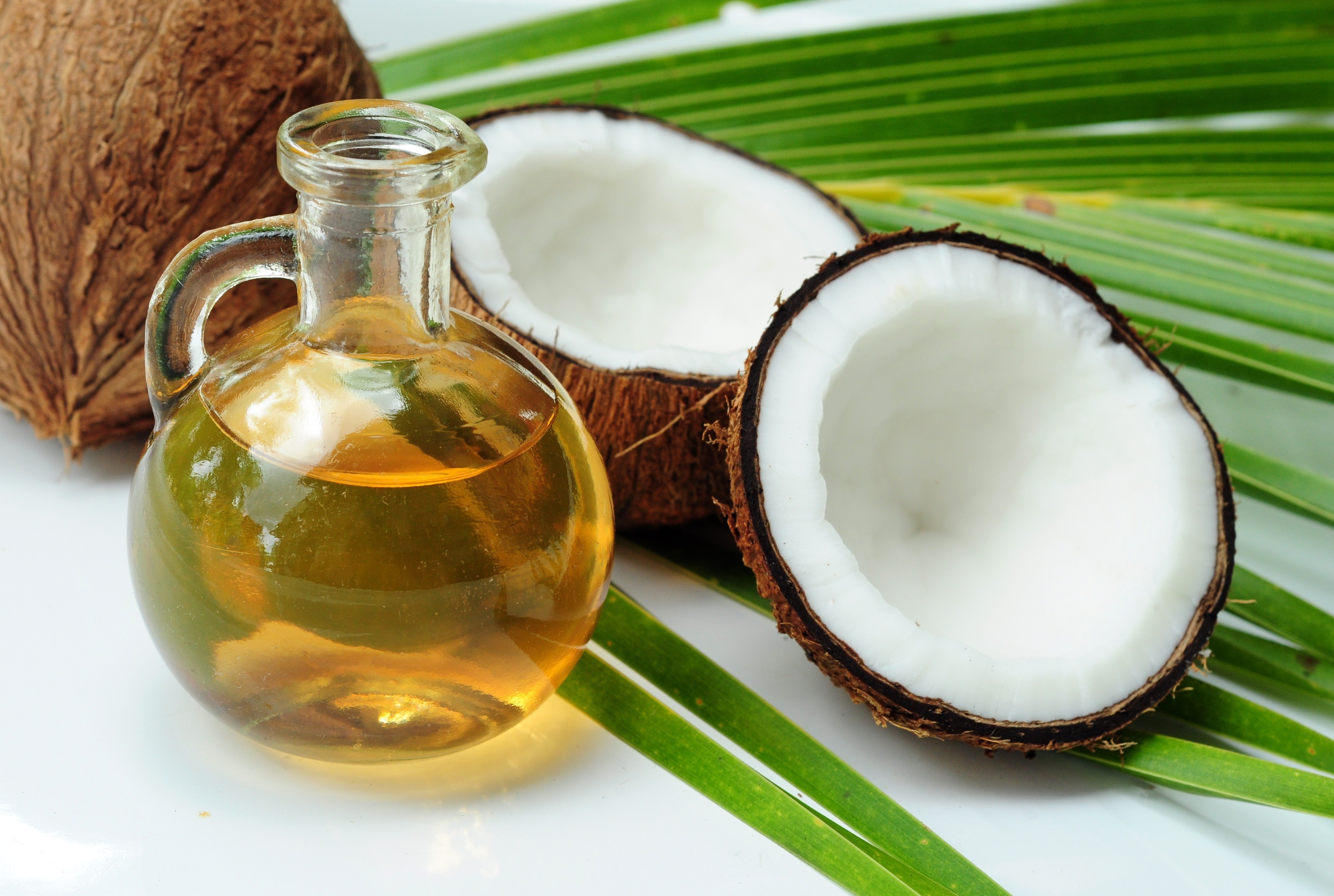
- Overview: The coconut fruit of the coconut palm is celebrated for its multifaceted use. Comprising a tough exterior hydrating water and succulent flesh it’s a staple in many culinary traditions.
- Nutritional Perks: Abundant in healthy fats especially medium-chain triglycerides (MCTs) which the body efficiently converts into energy coconuts also supply essential minerals such as manganese copper and iron.
- Health Benefits: The inclusion of coconut in one’s diet can bolster heart health enhance metabolic rates and provide both immediate and enduring energy. Its MCTs are known for aiding in weight maintenance and boosting cognitive functions.
- Applications: Coconut's versatility shines through its various forms—water milk oil and shredded flesh. Coconut water serves as a refreshing drink its milk enriches culinary creations coconut oil is a staple for cooking and shredded coconut enhances both sweet and savory dishes with its unique flavor and texture.
Sweet Potatoes:

- Overview: Sweet potatoes a vividly colored root vegetable are celebrated for their natural sweetness and health benefits. They are available in shades like orange purple and white each variety bringing its own set of nutrients.
- Nutritional Essence: Packed with beta-carotene which the body converts into vitamin A along with vitamin C fiber and minerals sweet potatoes offer a rich source of complex carbohydrates making them a hearty and wholesome choice.
- Health Contributions: The regular consumption of sweet potatoes supports eye health strengthens the immune system and aids in regulating blood sugar levels. Their antioxidant capacity is vital for overall wellness and may help guard against various chronic conditions.
- Versatility in Cooking: Whether roasted boiled mashed or baked sweet potatoes fit seamlessly into a myriad of recipes from stews and soups to casseroles. They are also enjoyed as fries or pies demonstrating their adaptability in both savory and sweet contexts.
What Portion Of a Meal Can Assure You a Balanced Diet To Meet the Requirements Of All Age Groups?
Ensuring a balanced diet that caters to the nutritional requirements of all age groups involves thoughtful meal composition and portion control. By integrating a variety of foods including the powerful nutrients found in African superfoods one can craft meals that support overall health and wellness across different life stages. Here’s a detailed guide to creating balanced meals:
1. Fruits and Vegetables: Half the Plate
- Rich in Vitamins and Minerals: Fruits and vegetables including those classified as African superfoods like baobab and moringa should make up half of your meal. They provide essential vitamins minerals and antioxidants that support immune function reduce disease risk and promote overall health.
- Variety is Key: Incorporate a wide range of colors and types to ensure you're getting a broad spectrum of nutrients. For example dark leafy greens for iron and calcium and bright fruits for a range of vitamins.
2. Whole Grains: One Quarter of the Plate
- Sustained Energy: Whole grains like teff and fonio offer complex carbohydrates for sustained energy fiber for digestive health and vital nutrients like B vitamins.
- Whole and Unrefined: Choose whole unrefined grains over processed versions to maximize nutritional intake and maintain healthy blood sugar levels.
3. Protein: One Quarter of the Plate
- Lean and Varied Sources: Include lean proteins such as poultry fish beans and legumes. Plant-based proteins including those derived from African superfoods like amaranth are excellent for heart health and weight management.
- Aim for Diversity: Rotating protein sources can ensure a broad intake of essential amino acids promoting muscle repair and growth.

4. Healthy Fats: In Moderation
- Essential for Absorption: Fats are crucial for the absorption of fat-soluble vitamins and provide essential fatty acids the body cannot produce. Incorporate healthy fats like those found in nuts seeds avocados and olive oil.
- Control Portions: While beneficial fats are calorie-dense so they should be consumed in moderation to maintain a balanced diet.
5. Hydration
- Water is Best: Hydration is a crucial part of a balanced diet. Water herbal teas and other low-sugar beverages can keep you hydrated without adding excess calories or sugar to your diet.
6. Moderation in Sweets and Processed Foods
- Limit Intake: Sweets and processed foods can be part of a balanced diet when consumed in moderation. These foods are typically high in added sugars and unhealthy fats which can detract from overall nutrition if consumed in large quantities.
Guidelines for All Age Groups
- Children: Focus on whole foods limiting sugary snacks and drinks. Ensure adequate intake of calcium and vitamin D for bone growth.
- Adolescents: Continue to emphasize a variety of foods to support growth spurts and physical activity. Encourage hydration especially with increased physical activity.
- Adults: Incorporate a wide range of nutrients to maintain energy levels support metabolic health and prevent chronic diseases. Focus on fiber-rich foods and lean proteins.
- Seniors: Prioritize nutrient-dense foods to meet nutritional needs even as caloric requirements decrease. Ensure adequate intake of fiber vitamins D and B12 and calcium.
By following these guidelines meals can be tailored to meet the nutritional needs of individuals at different stages of life ensuring a balanced diet that promotes health and well-being for all.
Conclusion
The exploration of African superfoods opens up a new realm of nutritional possibilities offering a natural way to enhance your health boost your immune system and prevent diseases. By incorporating these superfoods into your diet you're not only embracing the rich nutritional heritage of Africa but also taking a significant step towards a healthier more vibrant life. Whether you're looking to improve your energy levels support your gut health or simply add more nutrients to your diet African superfoods offer a delicious and nutritious solution that caters to the requirements of all age groups. Embrace the power of African superfoods today and transform your approach to health and wellness.

